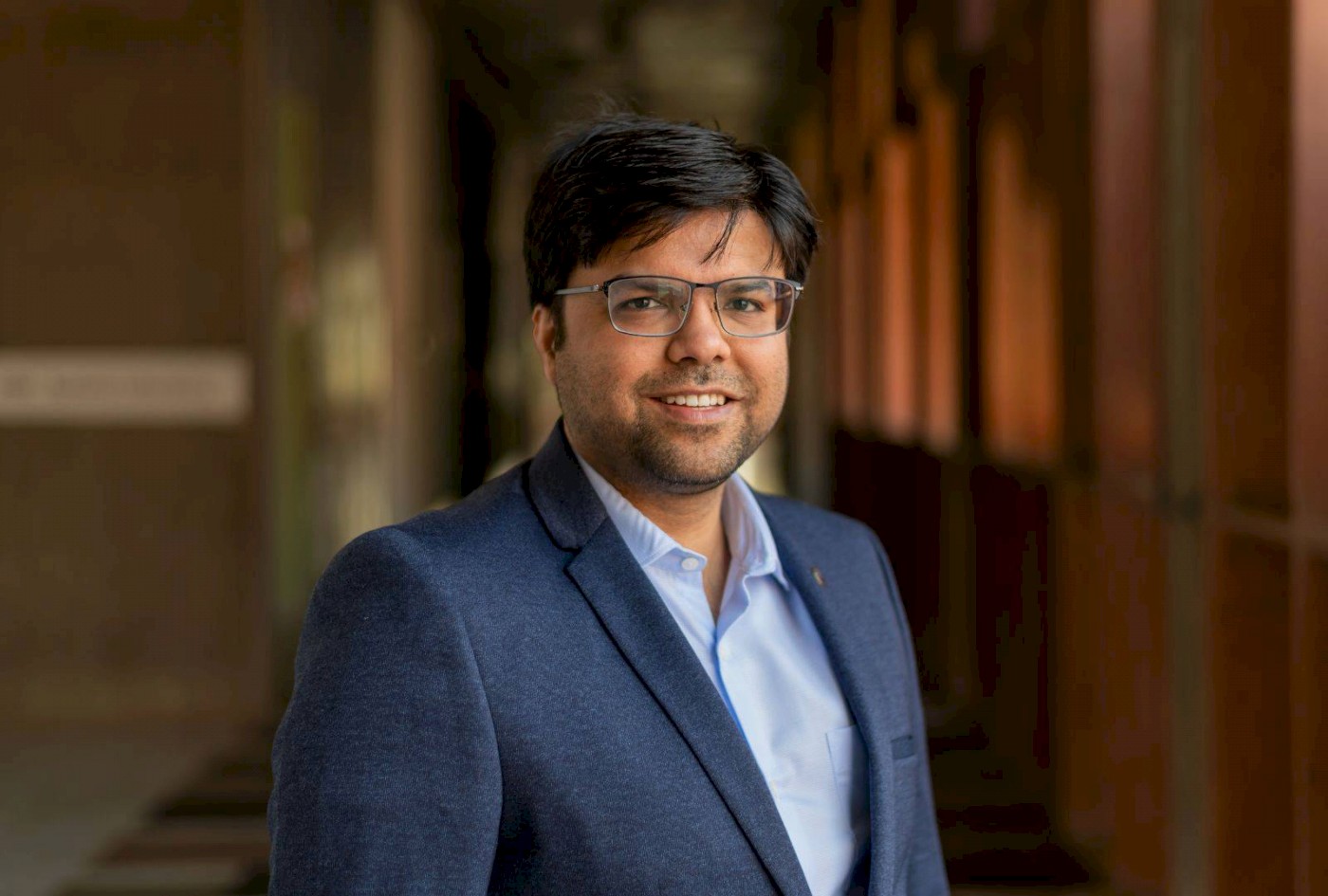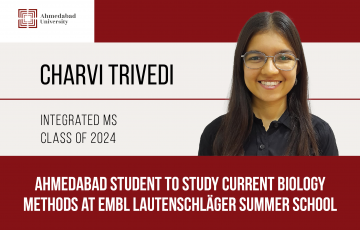17 April 2023
Ashim Rai Wins DBT/Wellcome Trust India Alliance Intermediate Award

Ashim Rai, Assistant Professor in the Biological and Life Sciences division of Ahmedabad University's School of Arts and Sciences, has received the highly prestigious DBT/Wellcome Trust India Alliance Intermediate Award supporting his research on Structure-function mapping of Salmonella-host cytoskeleton interactions for five years. Professor Rai is among the few researchers from private research institutions to have been awarded. He said, "I am delighted to receive this prestigious award. My proposed research aims to tackle host-pathogen interactions by implementing biophysical platforms that I have developed with the key goal of understanding the impact of pathogenic factors on cytoskeletal remodelling and transport."
This award to Professor Rai will augment Ahmedabad University's effort in accelerating research in the cluster, Emerging Infectious Diseases. The University has established key clusters of research to address societal problems in a focused manner. Driven by multidisciplinary teams, these clusters impact research, generate new knowledge, facilitate the creation of new teaching programmes, and contribute to student training and outreach in niche areas.
Why the Research is Critical
- How Salmonella works
Salmonella hijacks cells by using a molecular syringe to inject factors inside the cell that then hijack key cellular machines to enable pathogen invasion of cells. Professor Rai's work is directed at understanding the inner workings of how Salmonella factors hijack cellular machinery.
- Unidimensional approach of existing studies
Labs in pathogen biology typically use an approach involving broad-scale perturbations that do not yield mechanistic insights into host-pathogen interactions. Similarly, labs working in cytoskeletal biology often use a single approach, such as structural methods to understand the regulation of the cytoskeleton by external factors. This leads to a one-dimensional understanding of the cytoskeletal network. A key issue in the field is that most cytoskeletal biology labs have focused on the fundamental biology of cytoskeletal phenomena. The mechanisms used by pathogenic factors to hijack cytoskeletal networks have not been worked out.
- How Professor Rai's approach is unique
Professor Rai's specific interdisciplinary expertise in reconstitution biology, protein engineering, and DNA nanotechnology would allow him to probe functional effects using single-molecule reconstitution, conformational dynamics with FRET-based biosensors, and emergent behaviour through host-pathogen assembly on biomimetic DNA origami scaffolds. This combinatorial approach provides him an edge over other groups working in both pathogen and cytoskeletal biology fields.
Impact of the Proposed Research
The key rationale of the project is that the reconstitution and protein conformational biosensors will allow Professor Rai to tease apart the Salmonella-cytoskeleton protein interactions that are key to the hijack of the cytoskeletal network. This project would impact the pathogen biology field by providing an experimental paradigm to dissect structure-function mechanisms of cytoskeletal hijack by any bacterial or viral pathogens.
Understanding host-pathogen interactions remains one of the grand challenges in biology that directly contributes to therapeutic development in addition to deepening our knowledge of biological processes. Professor Rai explained the impact of the research, "Through my proposed research, I aim to bridge the gap between pathogen and cytoskeletal biology fields by building biophysical systems that allow for a single-molecule level dissection of mechanisms invoked by pathogenic factors to modulate host cytoskeletal proteins."



